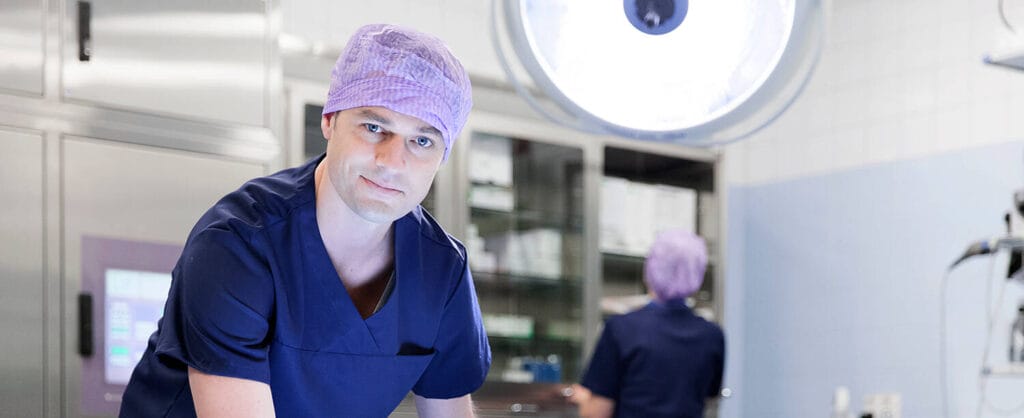
I love to take on tough challenges and do things differently.
With an educational background in electronics and communication engineering and an MBA, Aniruddha Banerjee combines technical expertise with business acumen in his role as Global Head of Healthcare at Lindström. Before his current role, Aniruddha’s career journey had its start in engineering and healthcare ancillaries with medical devices, automation and industrial instrumentation. Through these experiences, he gained broad expertise, before transitioning to the core healthcare industry.
Aniruddha’s appreciation for diverse cultures and people fuels his innovative approach to challenges. At the core of his strengths is resilience. “I love to take on tough challenges and do things differently.”
Global but local healthcare leadership
Aniruddha is responsible for global healthcare business development. He leads go-to-market activities, drives regional business development, and fosters competency building across the entire organisation.
Unlike country manager roles with shorter-term focuses for annual sales, Aniruddha rather embraces a visionary mindset in his global leadership role. “We need to think strategically for the long term, for a three or four-year period. It’s very important to have clear long-term strategic objectives.”
Navigating the regulatory-driven healthcare industry across countries requires an open mind. Aniruddha stresses the importance of understanding diverse customer behaviours and regulatory requirements.
“It’s very important to take a global approach. You cannot paint every country with the same brush. All the countries are different in terms of existing customer behaviour and local regulatory requirements.”
Collaborative approach to healthcare industry development
Aniruddha’s leadership style is all about collaboration, working closely with teams across Lindström. He shapes product and service development strategies that align with market needs and sales goals.
“I work very closely with customers and sales teams to have a clear idea of what needs to be developed in the respective markets. We develop products that our customers actually want and that sales people are ready to sell.”
As a football enthusiast, Aniruddha resonates with David Beckham’s words: “It’s not about the name on the back of the jersey, it’s about the badge on the front.” This highlights the importance of valuing team representation above individual recognition.
The future of healthcare: Sustainability, value-based, and AI-driven
Aniruddha is an advocate of circular economy principles and aims to reduce healthcare’s climate footprint. Through understanding healthcare’s role as a major contributor to disposables and rapidly discarded textiles, he emphasizes prioritising sustainability in addition to the patient experience.
“Healthcare’s climate footprint is equivalent to 4.4% of global net emissions (2 gigatons of carbon dioxide equivalent). My personal mission is to support the healthcare segment to bring down Scope 3 emissions, focusing on low-carbon or zero emissions procurement. Lindström’s shift from disposable to reusable products showcases our commitment to the cause.”
Aniruddha takes pride in working for an organisation that deeply commits to sustainability.
“We really walk the talk: we develop products that are built to last and that are made from recycled fibres. We always take an environmental point of view when we look at our industrial laundering processes to make it more efficient while minimising water, heat, and energy consumption.”
Aniruddha sees value-based healthcare as the modern model, where patients are at the centre of care. Lindström’s service model is deeply rooted in enhancing patient and caregiver experiences. There are four key aspects of value-based healthcare. These include implementing a continuum of care, improving the patient experience, standardising outcomes and costs, and delivering treatment through a collaborative and measurable chain of activities.
Aniruddha Banerjee is also intrigued by the possibilities of AI in healthcare, where medical decisions are made without human oversight. He sees this new technology as infinitely scalable. AI has potential to address healthcare disparities, improve patient outcomes, reduce the per capita cost of healthcare, and improve the experience of providing care — all while avoiding additive GHG emissions.




